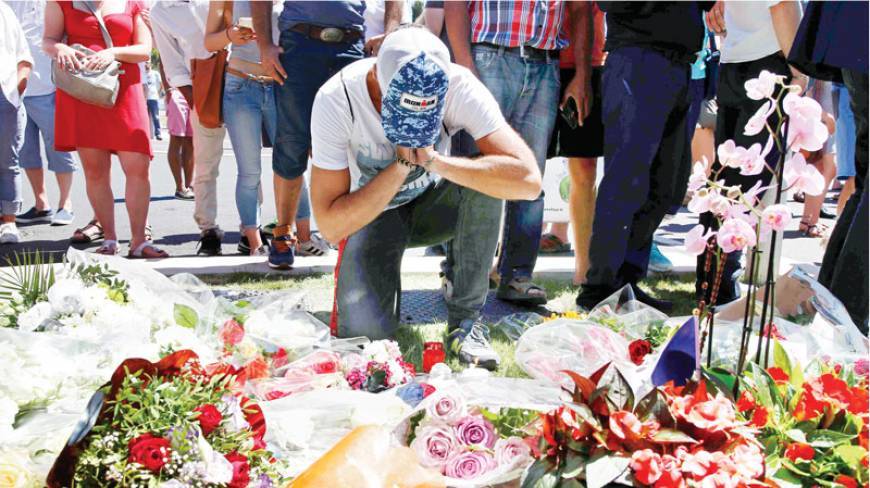World leaders united in horror and pledged their determination to fight terrorism on Friday after a truck attack on a Bastille Day crowd in the French Riviera city of Nice killed 84 people.
US President Barack Obama, Russian President Vladimir Putin and European and Asian leaders meeting for a summit in Mongolia joined in condemnation of what they called a terrorist attack in messages to French President Francois Hollande.
Police sources said the truck was driven by a 31-year Tunisian-born Frenchman known to authorities for petty crime but not Islamic radicalism, who was eventually shot dead after an exchange of gunfire with police.
Dozens more people were injured. The dead included foreign tourists and students.
European Council President Donald Tusk, speaking in the Mongolian capital Ulaanbaatar, captured the global shock when he spoke of the “tragic paradox that the subject of #NiceAttack was the people celebrating liberty, equality and fraternity.”
German Chancellor Angela Merkel said on the sidelines of the Asia Europe Meeting (ASEM) in Mongolia: “All of us who have come together at the ASEM summit are united in our feeling of disbelief at the attack of mass murder in Nice.”
New British Prime Minister Theresa May, whose country has just upset Paris and other European capitals by voting to leave the European Union, said Britain stood “shoulder to shoulder” with France.
Putin, whose relations with the West have been strained over Russian actions in Ukraine and Syria, went on Russian television to convey his condolences to Hollande after apparently being unable to reach him by telephone.
“Dear Francois, Russia knows what terror is and the threats that it creates for all of us. Our people have more than once encountered similar tragedies and is deeply affected by the incident, sympathises with the French people, and feels solidarity with them,”
he said, adding that Russian citizens were among the victims in Nice.
Domestic Agendas
In France itself, far-right National Front leader Marine Le Pen, expected to do well in next year’s presidential election, faulted the country’s response to past attacks.
“The war on the scourge of Islamist fundamentalism has not begun. It is urgent now that it be declared,” she said on Twitter.
In the Middle East, many messages of sympathy and condemnation were laced with domestic agendas.
Turkish President Tayyip Erdogan, whose country was hit just days ago by a coordinated gun and bomb attack on Istanbul airport by suspected Islamic State militants, said Turks could understand what France and the French people were going through.
Saudi Arabia’s top clerical body condemned the French attack but said it should not distract the world from “the crimes of the Syrian regime”.
Israeli Prime Minister Benjamin Netanyahu, whose settlement policies on Palestinian land have been criticised by France and other foreign countries, said Israel stood ready “to help the French government fight this evil until it is defeated”.
Neighbours Discuss Security
Italy, Spain, Germany, Britain and Belgium, all of which are neighbours of France, held separate meetings to review their own security after the Nice attack, which came just after the French had successfully hosted the Euro 2016 soccer tournament and launched a massive security operation during it.
Germany said it had boosted border controls at airports as well as road and rail crossings into France in response, as did Italy.
Britain and Belgium said their threat level was already severe, indicating they regard an attack is “highly likely”.
It was the third time that France has been hit in 18 months, following the attacks on satirical newspaper Charlie Hebdo and a Jewish supermarket in January 2015 and a wave of gun and bomb assaults in November on a concert hall, restaurants and bars and the national soccer stadium.
Last month, a knife attacker killed two French police officers in their home before being shot deal by police.
Source: Dhaka Tribune









